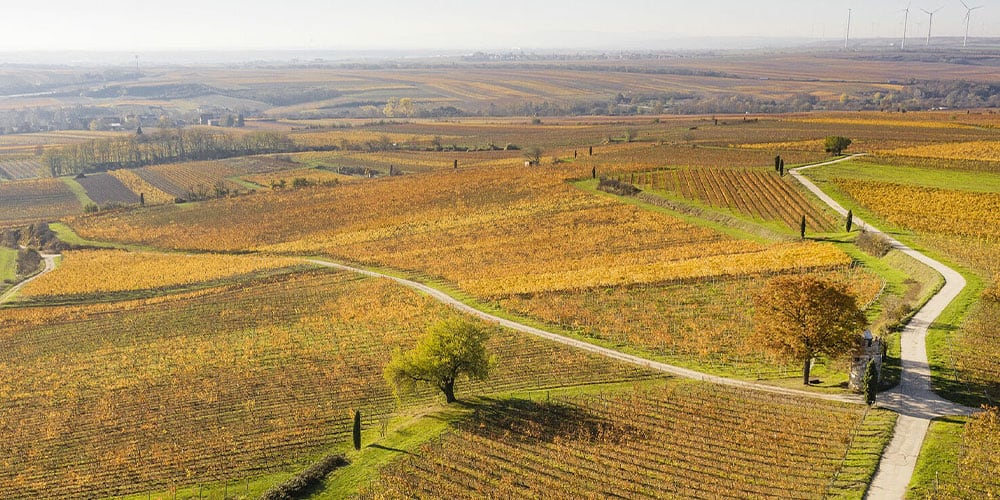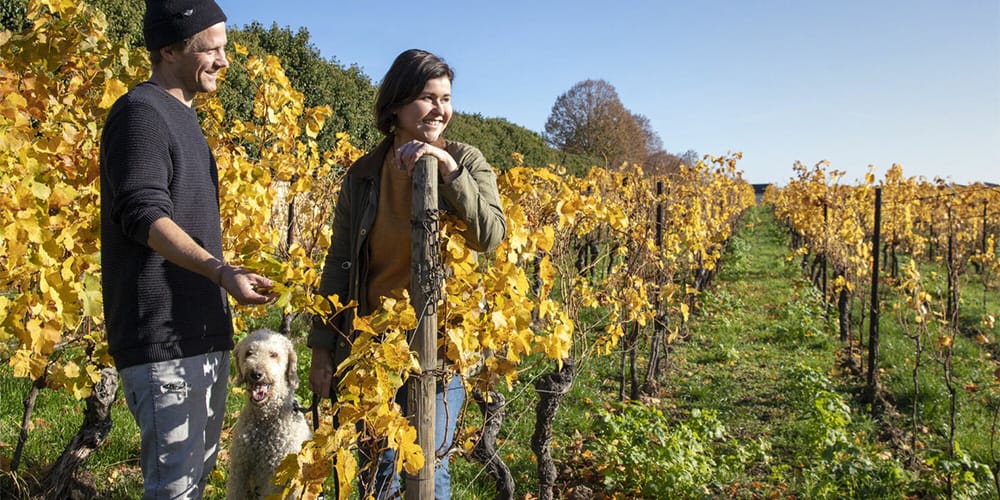Weingut Wechsler
Sustainability has become an increasingly important concept within the global wine industry. However, it is all too often a misunderstood notion, with broad interpretations and diverse implications. It is typically used interchangeably with terms like organic, biodynamic and natural. While all three can be a part of sustainability, it encompasses much more, referring to a holistic approach to winemaking that aims to minimize the impact of grape growing and wine production on the natural environment and on the people involved.
Sustainable wine production often includes activities related to energy use, such as creating a gravity-fed cellar, where grapes enter the winery from above instead of using traditional powered conveyers and augers. While some wineries eschew traditional cold stabilization — a process of clarifying wine and removing ‘wine diamonds’ to ensure a clear, vivid product — this approach requires a fair amount of energy to perform. Instead, many progressive wineries are now looking at alternative clarification methods, such as ‘flotation’. Here, the wine is inoculated with an enzyme and bentonite, producing nitrogen ‘bubbles’ that force impurities to the top of the tank where they can easily be removed. This requires no energy and has the added benefit of being a much gentler process, resulting in wine with more character and nuance.

As growing grapes and producing wine require an enormous amount of water, an increasingly critical aspect of a winery’s sustainability efforts centre around water use and conservation. Sustainable wineries constantly monitor their water footprint in order to rationalize the use of this resource throughout the winery and in the vineyard. Replacing nozzles and hoses with new, high pressure options can greatly improve water efficiency during the cleaning of tanks, barrels and bottles. As climates change and precipitation levels fluctuate, irrigation has become necessary in many of the world’s wine regions. Many wineries now use soil moisture analysis, which is aimed at identifying precisely when, where and how much to irrigate.
One of the fastest-growing trends within the industry is low-intervention winemaking. Although its definition is not set in stone, it is clearly related to sustainability in its ethos. Some of the practices used include organic and biodynamic grape growing, low or no vineyard irrigation, ambient yeast fermentation and minimal or no use of additives or preservatives. With fewer inputs involved, low-intervention wines are more sustainable than their traditional counterparts.
Packaging is often an overlooked aspect of wine sustainability. While the vast majority of wine consumers continue to prefer wine in bottle, many wineries are exploring alternative packaging options, including shipping in bulk. Traditionally, these alternatives have been exclusively used for entry-level, inexpensive wines. But that is no longer the case, as premium wineries look to get wine to consumers in a more efficient and sustainable way.

At Buyers+Cellars, we are fortunate to work with a great number of highly sustainable wine producers. One such winery is Weingut Wechsler, located in Germany’s Rheinhessen region. The estate comprises a total of 17 hectares under vine, with several parcels in vineyards surrounding the village of Westhofen. The winery is under the stewardship of young and energetic Katharina Wechsler, a rising star in the German wine scene. The majority of fruit is sold off to the local cooperative, but the best grapes from the property are kept and gently coerced into 5,000 cases of wine made from a variety of classic grape varieties: Riesling, Sylvaner, Pinot Blanc, Pinot Gris, Sauvignon Blanc and Pinot Noir. Katharina’s wines definitely fall into the ‘low-intervention’ category. Grapes are farmed organically, fermentations occur via native yeasts, little to no sulphur is used and her wines are unfiltered. These bottles differ greatly from the typically fruity and powerful Rheinhessen character. They are, instead, complex, delicate and nuanced, made for the table alongside a variety of fare.

